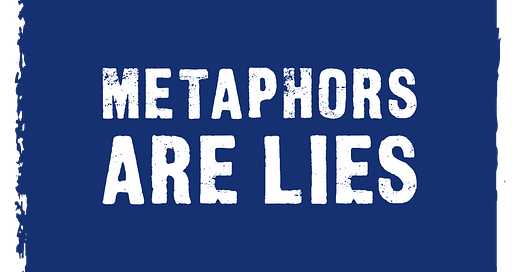You cannot make me appreciate poetry.
I realize to many that makes me an uncouth philistine, and of course such a sweeping statement is only honored in the breach. I am sure if pressed I would find poems I enjoyed (W.H. Auden’s “Stop the Clocks” actually comes to mind as I write this, for example. Because I am a very happy person.), and I am well aware that Shakespeare, one of my favorite authors, for example, wrote in verse. But generally, Sturgeon’s Law is too kind to poetry. If you do not put it to music, it sucks eggs.
And no number of humanities classes in college would ever have changed that opinion. But that’s not why people should take humanities in school. I bring this tiresome subject up because we are once again going through a round of humanities vs. STEM nonsense on the twitter machines brought on largely by this tweet:
Conrad Bastable on Twitter: "It always surprises me how gleeful non-STEM grads are to subject engineering students to a course load that's 25% humanities. The reverse is never true -- I don't think liberal arts colleges should subject students to Thermodynamics & E&M!" / Twitter
Now, I do have some sympathy for the position that STEM degrees are too long. As a holder of one, I do appreciate how harmful the extra cost is to the long-term financial health of the people who have to endure it. But the solution to that problem is to either rethink how to deliver the courses or fire eighty percent of college administrators and make college free for everyone. It is not to ditch humanities course requirements for STEM majors.
See, humanities majors are required to take science and engineering courses. I went to school to become a lawyer (or a writer. But I grew up poor and once I realized just how hard it is to make a living as a writer? Well. Being poor sucks.) But I fell in love with engineering because of one of those mythical required courses for humanities majors. The sheer joy of discovery, the awe at the majesty of how the physical world worked, the sense of satisfaction after solving a problem with nothing but your brain and your tools? Sold me forever. Fortunately, I turned out to be good enough at it to earn a decent living. But I would never have known such a route existed for me personally if the school I attended hadn’t made me take an engineering course.
And that is why we should continue to do so for STEM majors. Not because it somehow makes you a better person (As if the Duning School and Peter Thiel’s pet philosophers don’t exist), but because it literally helps you think differently. It exercises different modes of thought, different ways of approaching problems and life. Sometimes that means you find a calling. Sometimes that means you spend your class finding inventive ways to rag on terrible poets. But it always means you are better for the experience, a fuller thinker, better able to maneuver the real world with all its messiness and different modes of being.
And that applies equally to humanities majors and STEM classes. Anyone who cannot understand basic statistics, who never learns about the beauty and wonder of the natural world, who never has to challenge themselves with the rigor of the scientific process, is as limited in their humanity as a person who never sees a play or never listens to music or, yes, never reads inevitably crappy poems.
Human beings are not binaries, either all one thing or all the other. We contain multitudes and we should have an opportunity to allow of each of those multitudes to grow and prosper. The point of school (and I argue this should apply as much to high school as it does college) should be to aid in that growth. Making people experience the breadth of human knowledge and ways of learning about the world and the people in it is the fundamental purpose of education. The skills we pick up, as important as they may be, are secondary to that objective.
Yes, there are many, many problems with the way we go about implementing those goals in the modern American educational system. But the goals have value, no matter the poor implementation. Exposing people to multiple ways of learning, of experiencing the world, of modes of thought, is a value in and of itself. We can do it better, or at least more fairly, when it comes to the financial and time burden those goals place on certain students. But we should never abandon the goals themselves.
Just don’t think you can make me appreciate poetry.




